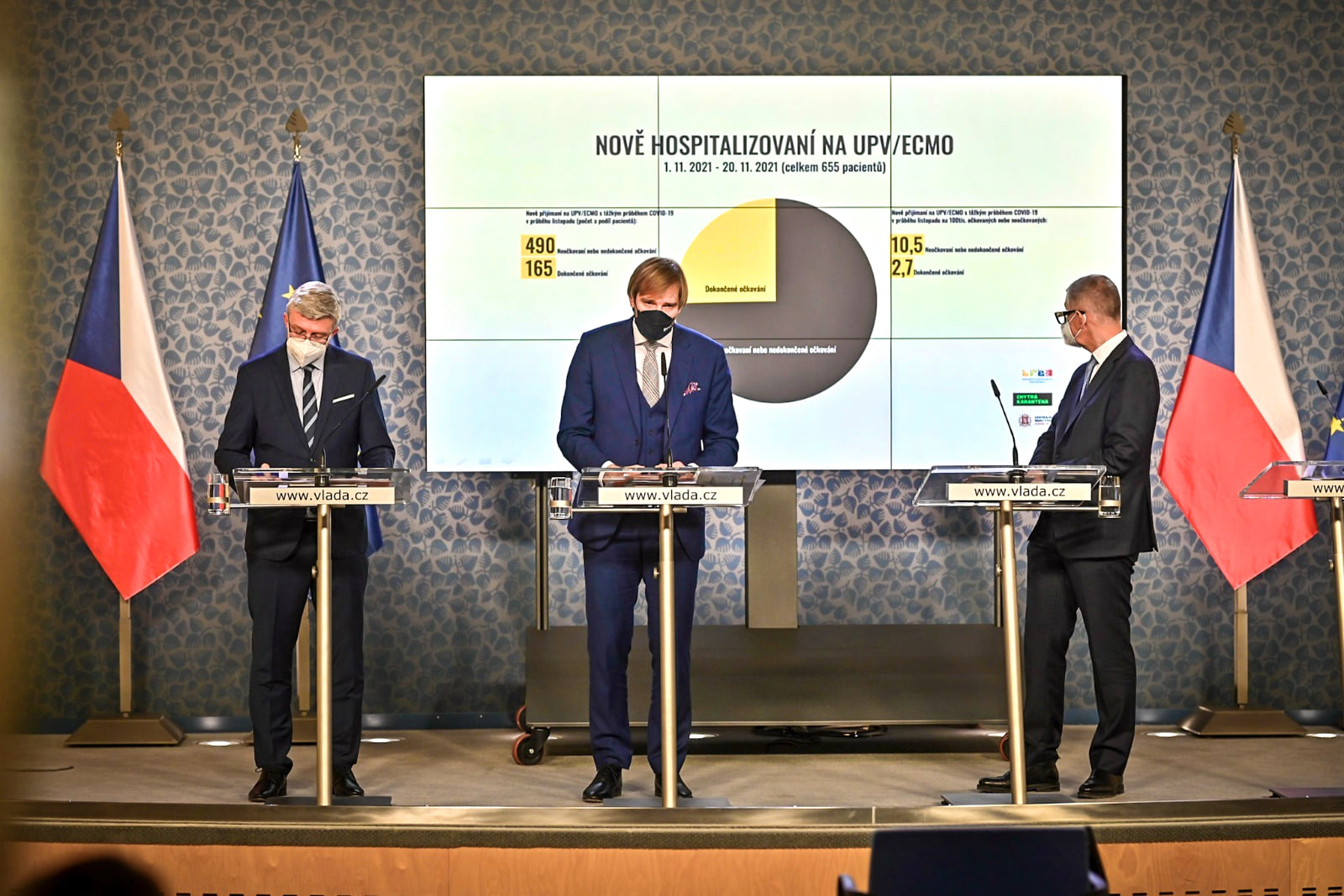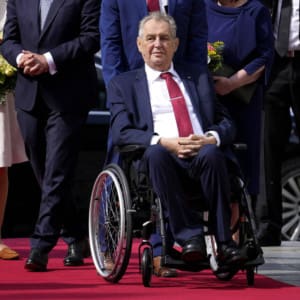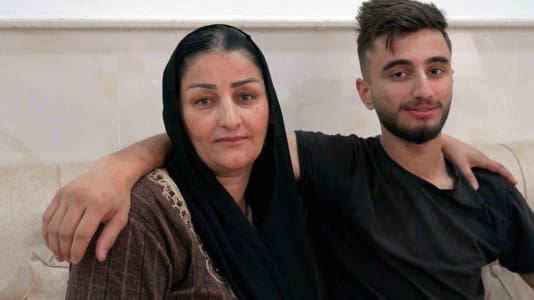On Thursday, November 25, the Czech government declared a state of emergency, which came into effect at midnight and will be valid for 30 days. Minister of Health Adam Vojtěch subsequently announced at a press conference that restaurants and bars would have to stay closed between 10 p.m. and 5 a.m.
The government has also banned Christmas markets and the consumption of alcohol in public places. The number of people at mass events such as celebrations or balls is now limited to 100. A maximum of 1,000 people will be allowed to attend cultural performances, sporting events and educational events, but they have to be vaccinated or have recovered from COVID-19.
Although on Tuesday the government agreed with the regional governors that a state of emergency would not be necessary, the new comprehensive coronavirus measures would not be possible without it.
Vojtěch said that the new restrictions target events where there is the greatest risk of transmission and where people are reluctant to follow the rules.
The government will evaluate the impact of the measures in 10 days or two weeks, after which the restrictions might be adjusted.
Prime Minister Andrej Babiš added that Czechia does not want to introduce a lockdown such as in Austria or Slovakia.
“We have a quasi-Bavarian model, a de facto lockdown model for the unvaccinated. Why should we put the people who got vaccinated under lockdown? If everyone got vaccinated, we would not have such an escalating situation in hospitals,” he noted.
According to Babiš, mandatory vaccination in some professions and age groups is inevitable and should begin February 1, 2022, most likely for people over 60. Professions obligated to get vaccinated should include workers in healthcare and social services, police officers, soldiers and firefighters, the PM said, adding that a decision on mandatory vaccination will be made next week.






